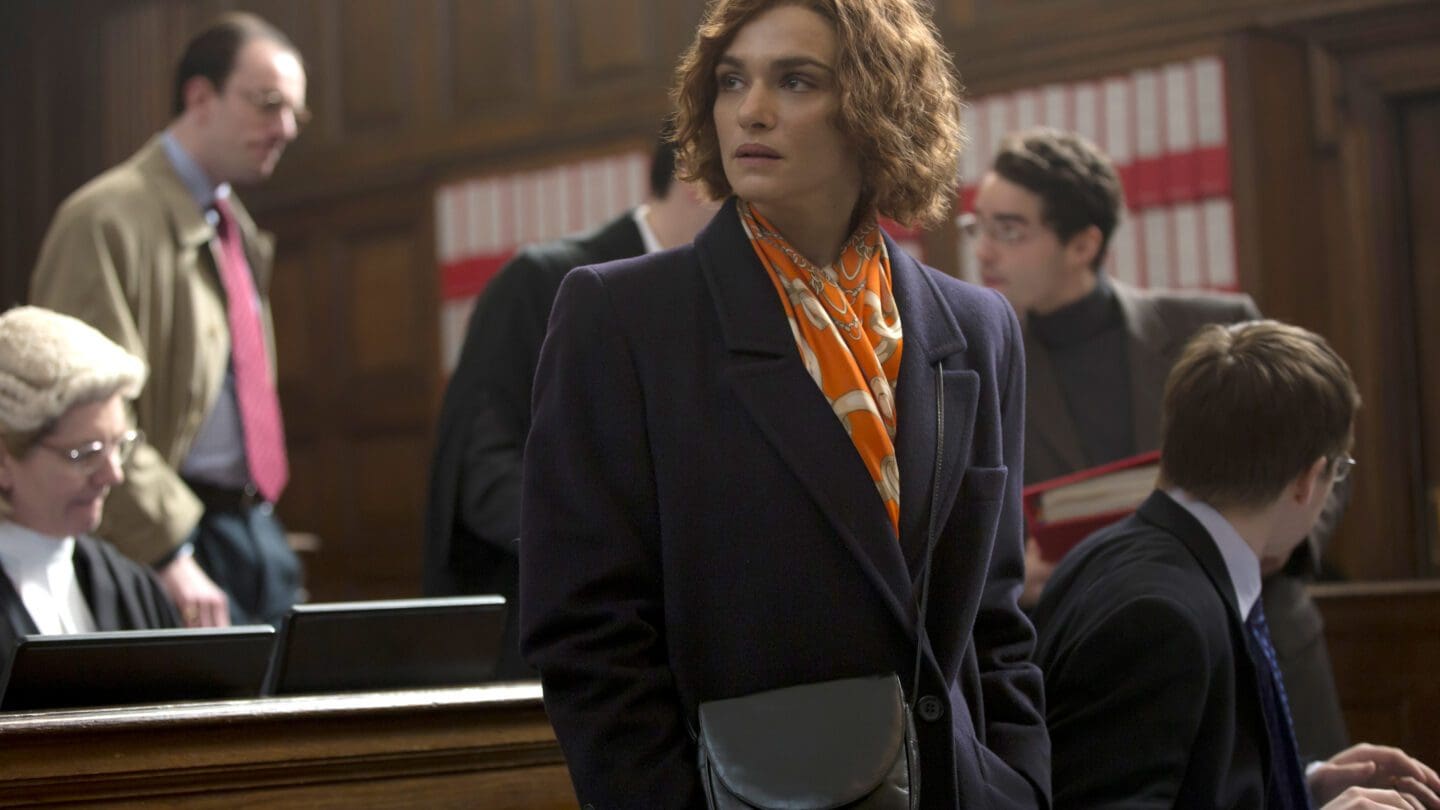Denial Discussion Guide
Denial recounts Deborah E. Lipstadt’s legal battle for historical truth against British author David Irving who sued her and her publisher Penguin Books in an English court for libel after she declared him a Holocaust denier in her 1993 book Denying the Holocaust: The Growing Assault on Truth and Memory. In cases of libel in the English court system, the burden of proof is on the defendant; therefore, it was up to Lipstadt and her legal team to prove the essential truth that the Holocaust occurred. The film chronicles the defense team’s efforts to build its case, including a visit to Auschwitz-Birkenau; the events of the bench trial; and the landmark decision of Justice Charles Gray as recounted in Lipstadt’s books History on Trial: My Day in Court with David Irving (2005) and Denial: Holocaust History on Trial (2016).
Denial provides an opportunity for students to learn about the Holocaust, Holocaust denial, antisemitism, and an important court battle that essentially put historical truth on trial. The film can be viewed and discussed with students in classes such as world history, ethics, psychology, legal theory, or as part of a unit on World War II or Holocaust Studies.
Several of the topics in Denial need context in order to fully understand the events of the trial. The first part of this Teacher’s Discussion Guide provides recommended resources from the Echoes and Reflections Teacher’s Resource Guide and IWitness to help teachers set the stage prior to viewing the film; the second part suggests topics for students to discuss after having watched the film. These two sections are followed by ideas for extension activities and additional resources that teachers can share with students.
Materials outlined in this resource address Common Core State Standards for Literacy in History/Social Studies 6-12 and National Curriculum Standards for Social Studies.




